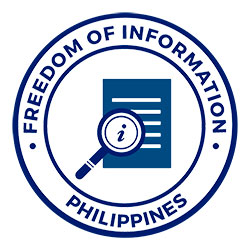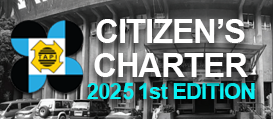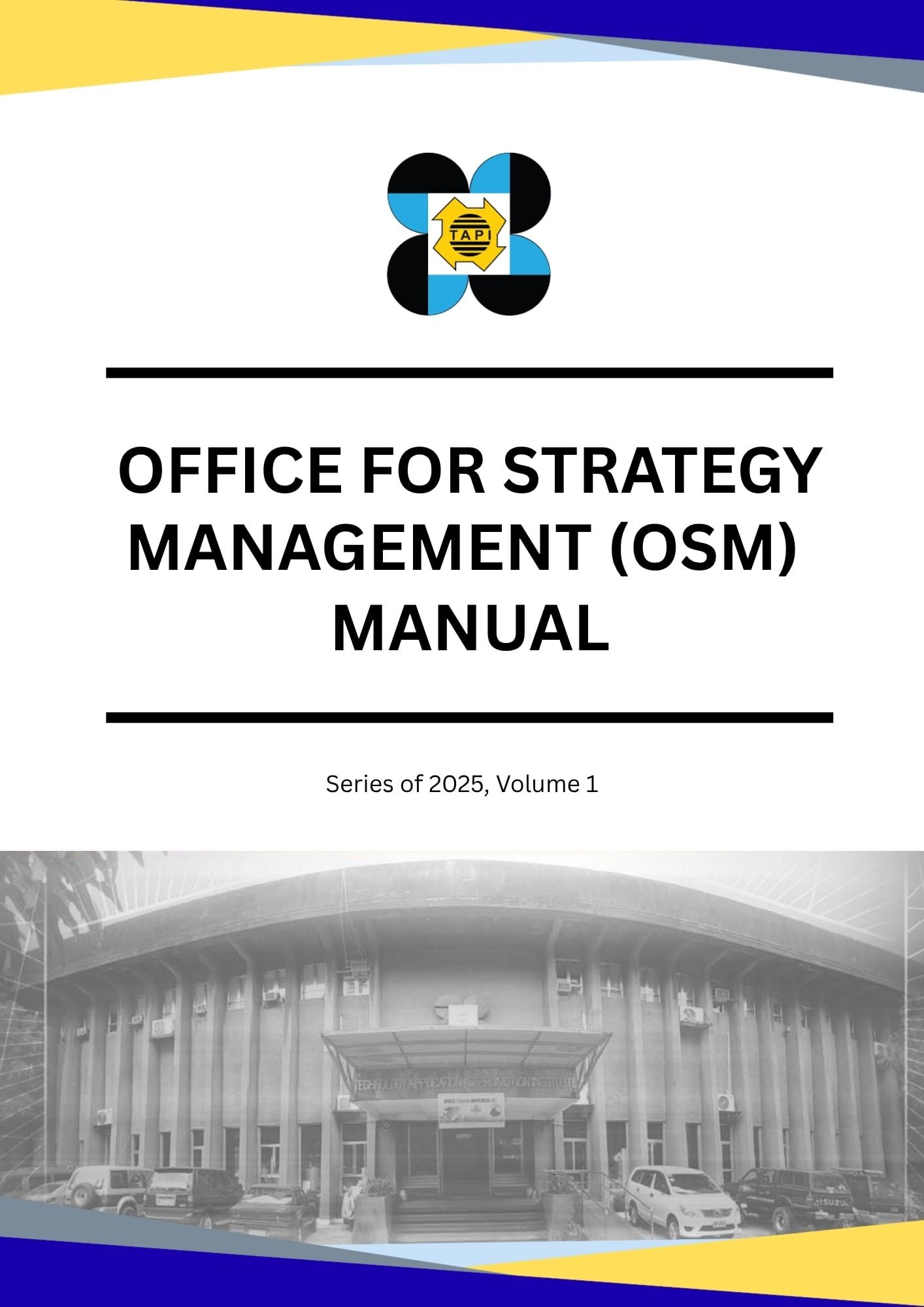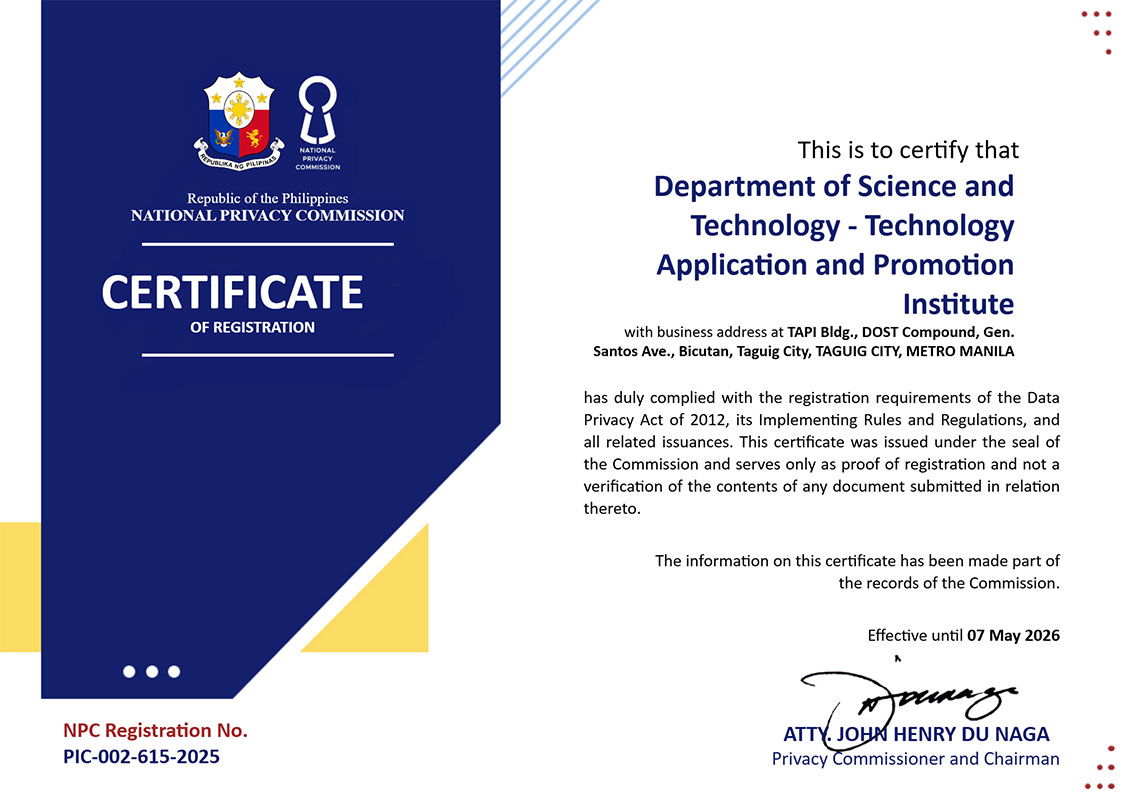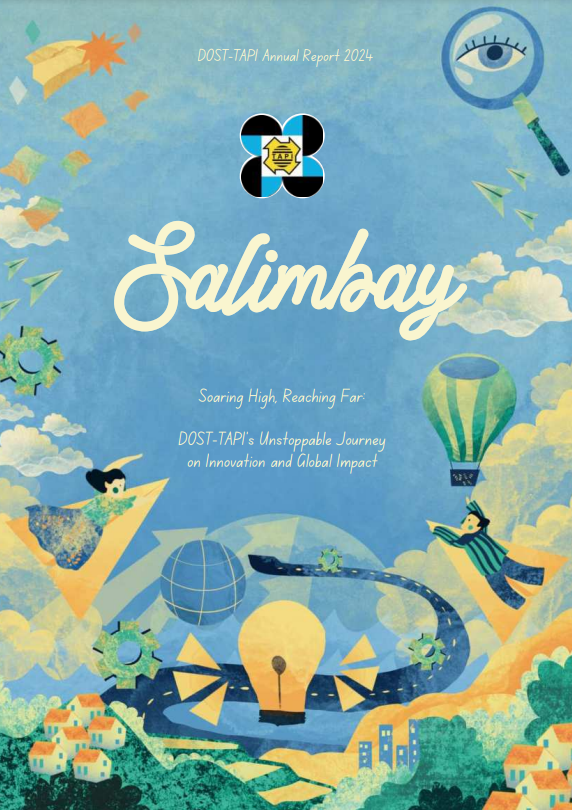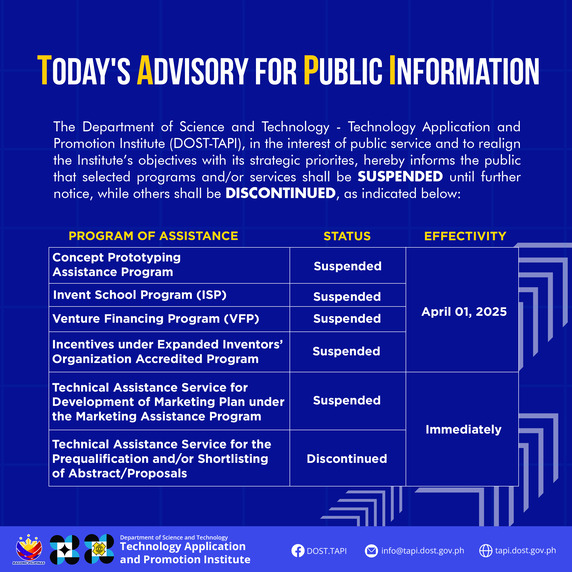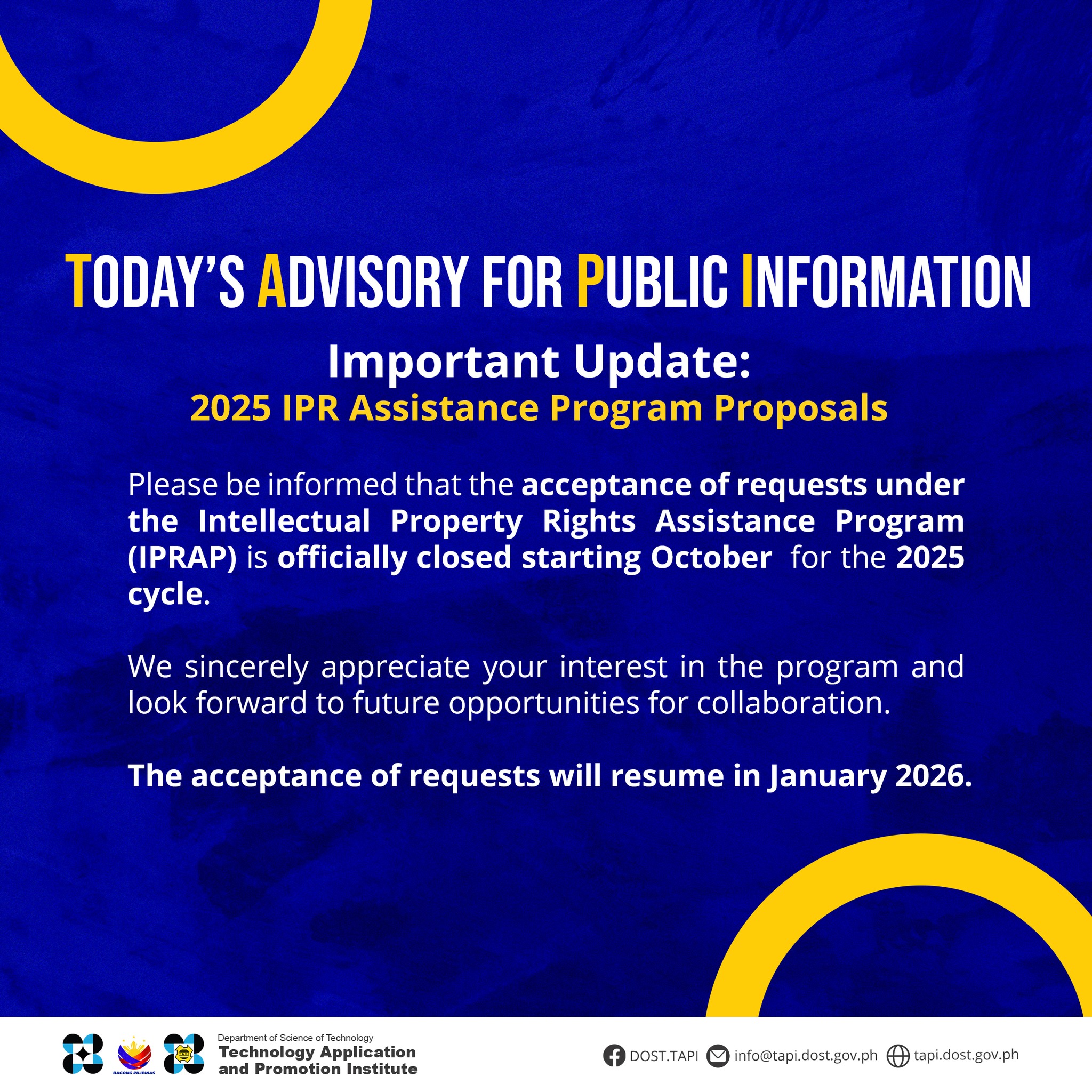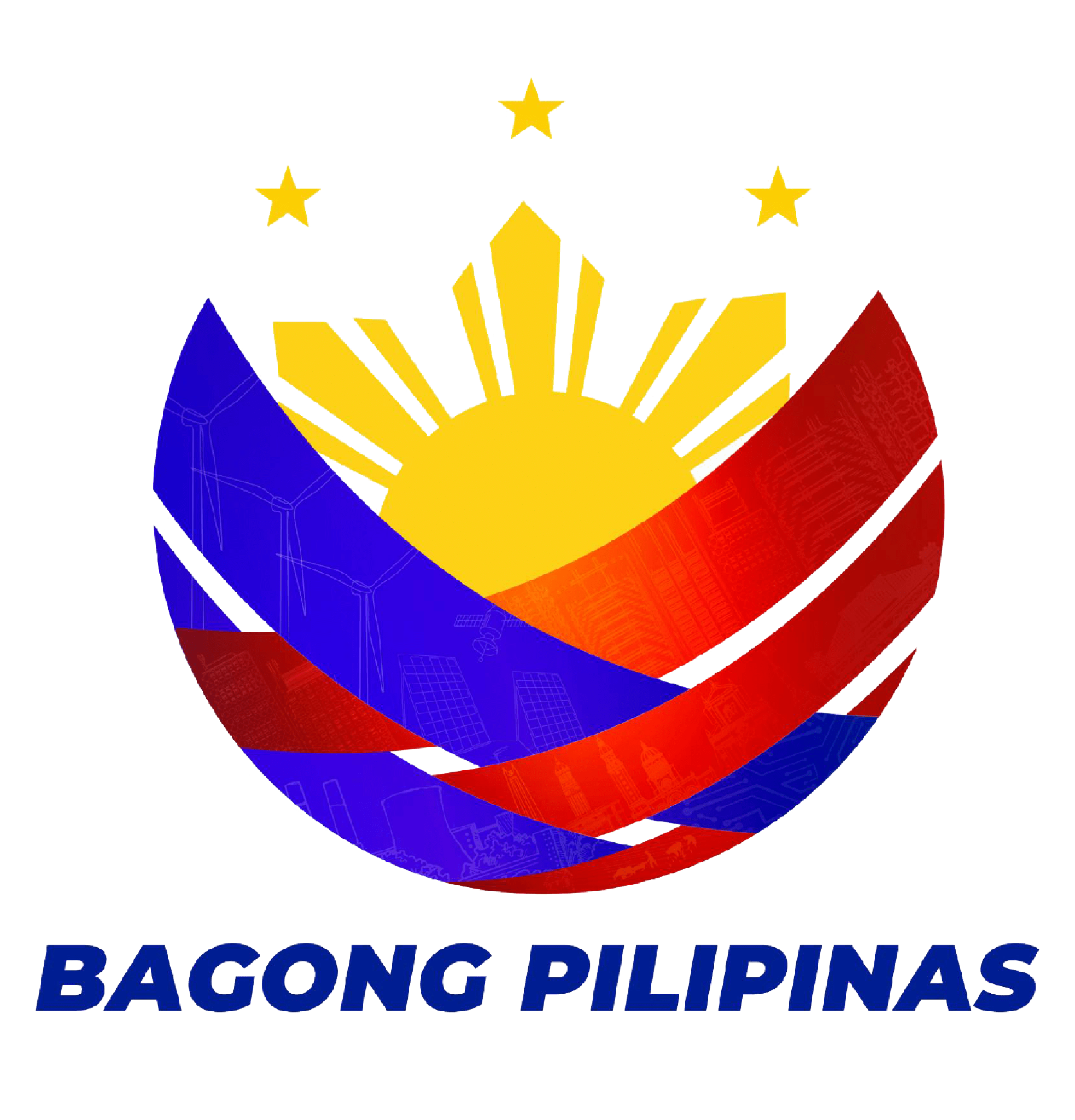by Karen Rojas
To provide a uniform understanding of the Department of Science and Technology (DOST)’s intellectual property (IP)-related policies, the Technology Application and Promotion Institute (DOST-TAPI) launched a series of information dissemination in North Luzon, South Luzon, Visayas, and Mindanao.
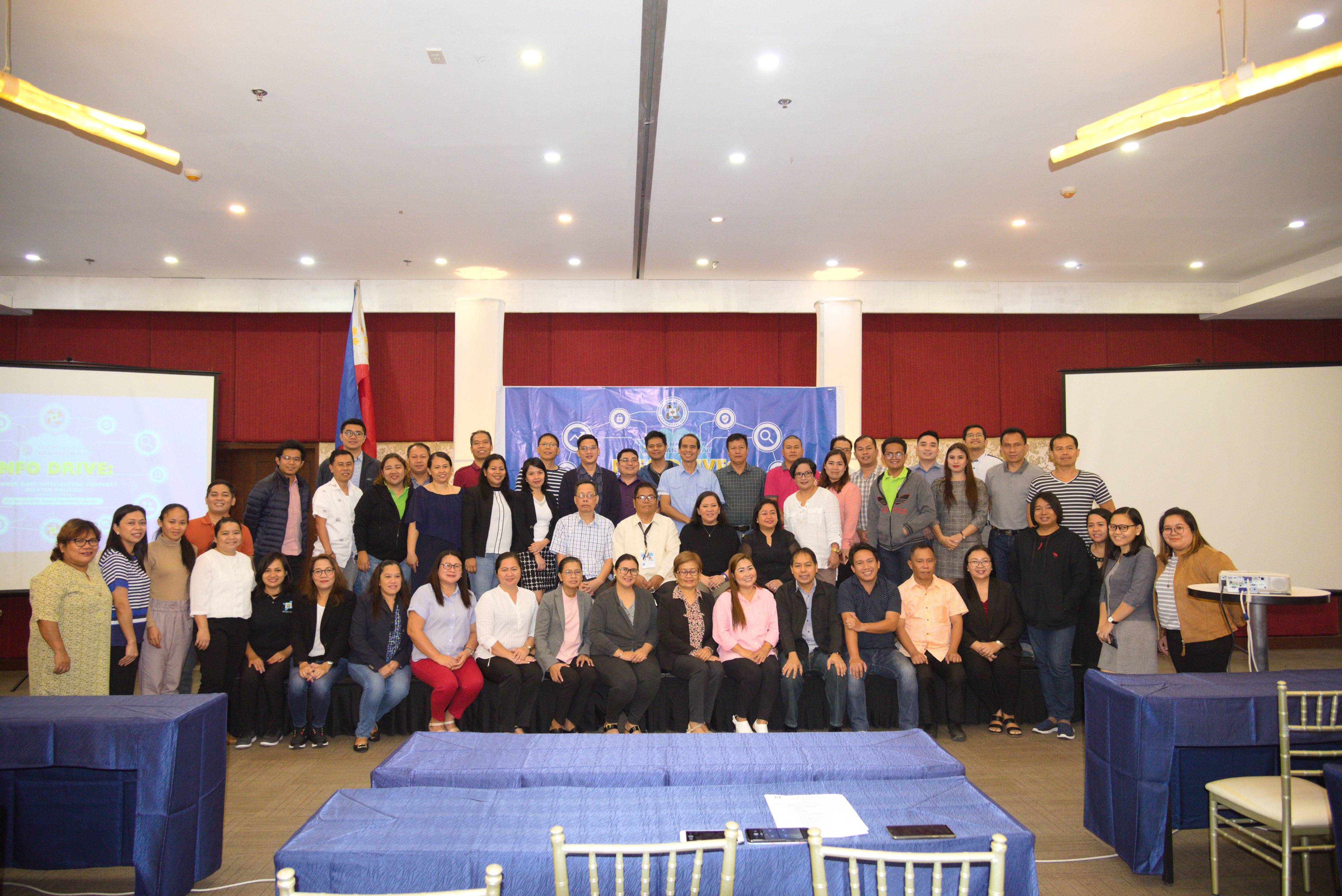
IP-related policies Information drive in Cebu City
These IP-related policies were amended by DOST based on the Implementing Rules and Regulations of the Philippine Technology Transfer Act of 2009.
Through the Technology Transfer Day Project, the two-day information drives featured DOST-TAPI experts, Atty. Marion Ivy D. Decena, Mr. Caezar Angelito E. Arceo, Atty. Lucieden G. Raz, and Atty. Ma. Gladys C. Vilchez as resource speakers.
Amendment of the DOST IP Policy
Atty. Raz explained that the law covers all government-funded research and the researcher will still have the rights to the outputs and IPs of the project.
She also talked about the ownership of community-developed technologies concerning the indigenous people's rights.
This portion has covered the management of funds, the relationship between the university and their faculty, the recovery of IP after the march-in of the funding agency, the conflicts between the IP policies of research and development institutes (RDI), and the execution of confidential disclosure.
Amendment of the DOST Technology Transfer Protocol
Atty. Raz emphasized the importance of executing and understanding the conditions of a Research Funding Agreement because it will determine the ownership of the IP and membership of the research team.
She also stated that RDIs should identify the parties with intellectual contributions to the research because it will be the basis for ownership, salary, and incentives awarded from the IP.
The protocol covered the identification, disclosure, and protection of IPs, the revenue sharing, and the establishing spin-off firms, as well as requirements for establishing a Technology Licensing Office.
Guidelines on the Issuance of the Fairness Opinion Report Written Recommendation
This portion of the information drives focused on the required transaction for a fairness opinion report (FOR), consequences of not applying for FOR, and handling unfair findings by the fairness opinion board (FOB).
Also, it tackled the sharing of royalties, the protocols on foreign clients applying for FOR, and the violations on the code of ethical standards.
Amendment of the DOST IP Management Protocol
Atty. Raz explained that the evaluation report would serve as the basis for the licensing fees.
She also said that the best practice is to apply for IP protection and secure a valuation report to determine the technology's licensing fees and royalty fees.
This portion focused on the possible violations to establish spin-off firms or to choose faculty associations as licensees of the state universities and colleges’ technology for commercialization.
“The establishment of spin-off firms is not a violation of the Civil Service Commission rules on double compensation. This option is a privilege given to the researcher-employees,” emphasized Atty. Raz.
Amendment on the Policy Guidelines Governing Contract Research
This part of the information drives have opened the concerns on utilizing the funds and revenue from the technology developed through contract research.
It also tackled the salary for the research team and how to handle the discovery of potential IP.
To know more about the Tech Trans Day Project, please attend the Week-Long Accomplishment and Culminating Activity of Special Projects on 26-30 July 2021 via the DOST-TAPI Facebook Page at www.facebook.com/DOST.TAPI.
For more information, please visit www.tapi.dost.gov.ph, contact 8837 2071 local 2157 and 2167, or email This email address is being protected from spambots. You need JavaScript enabled to view it..


